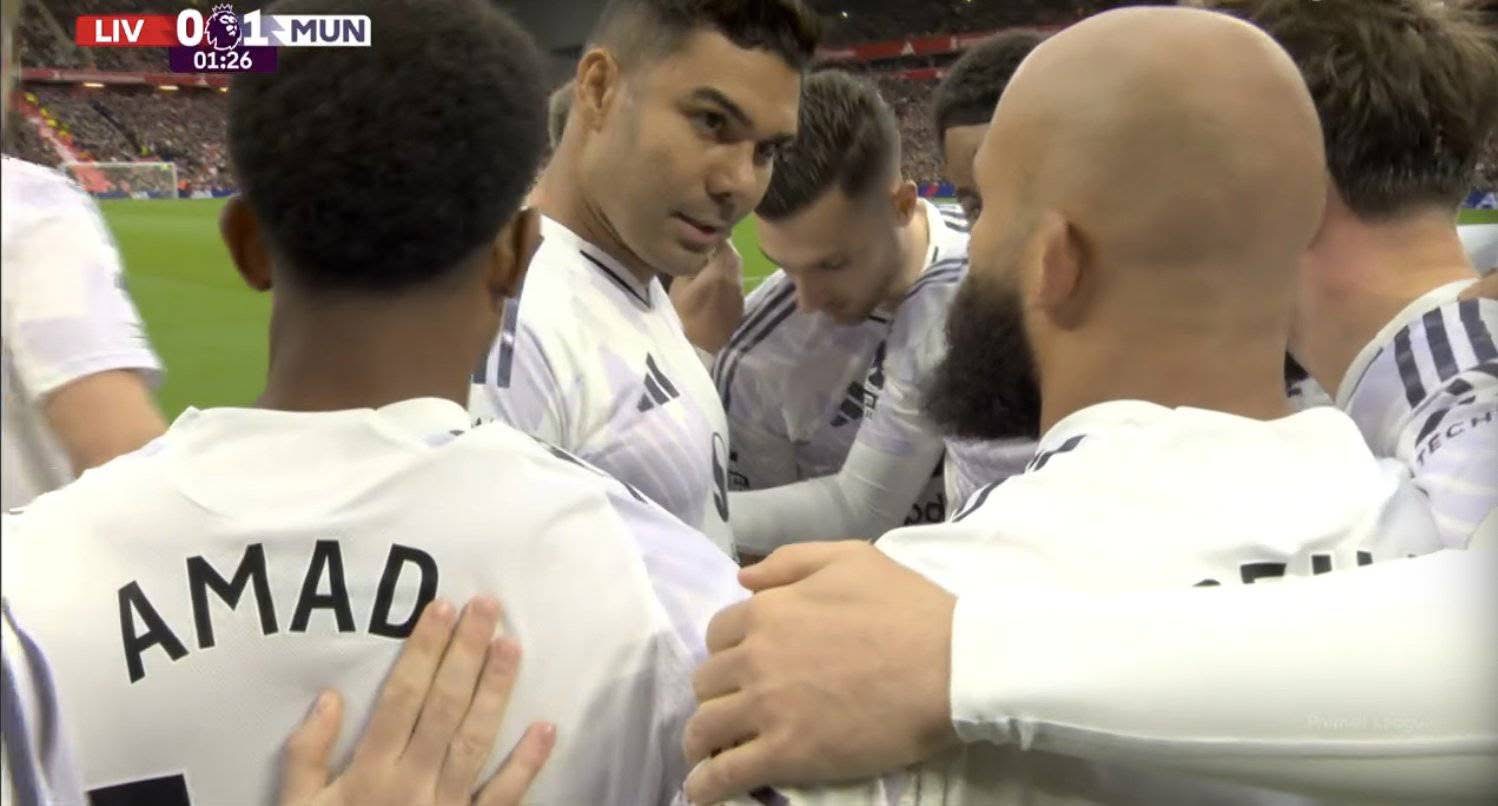A New Dawn at Old Trafford
By the time the new season kicked off, Manchester United had quietly but decisively reshaped their attack. The arrivals of Matheus Cunha, Bryan Mbeumo, and Benjamin Šeško were not scattergun signings, nor were they panic-driven deals done in the final days of the window. Instead, they were deliberate, calculated moves aimed at balancing immediate impact with long-term development.
The trio represent three very different footballing profiles, yet when combined, they give Rúben Amorim something Manchester United have lacked for far too long: a forward line with both depth and identity.
Matheus Cunha: The Creative Engine
Cunha’s arrival from Wolves may not have sparked the kind of global frenzy that a superstar signing usually does, but it might prove one of the shrewdest moves of the summer. At 25, Cunha brings something that United’s attack has been crying out for — creativity mixed with chaos.
He isn’t just a goalscorer. In fact, his best work often comes when he drops deep, dribbles through tight lines, and links play with midfielders. Last season in the Premier League, Cunha demonstrated how he can pull defenders out of position, create spaces for teammates, and still carry the ball with purpose.
For United, who have often been guilty of being too static in the final third, Cunha provides unpredictability. He is the type of player who can turn a low block inside out with a sudden piece of skill or by dragging markers away from danger zones. Amorim clearly sees him not as a luxury signing, but as a glue — someone who can connect midfield to attack in ways this team has been sorely missing.
Bryan Mbeumo: The Premier League Proven Winger
If Cunha is the creative spark, then Bryan Mbeumo is the relentless engine. Having thrived at Brentford, Mbeumo arrives with that all-important quality: Premier League experience. He knows the pace, the physicality, and the tactical demands of English football. Unlike some of United’s recent attacking signings, he doesn’t need a year to adapt. He’s ready now.
Mbeumo is direct, versatile, and dangerous in multiple roles. He can play off the right, cut inside on his left, or even operate more centrally if needed. But what makes him stand out is his work ethic. He presses tirelessly, tracks back when required, and brings a level of intensity that Amorim demands in his system.
For years, United fans have grown frustrated watching wingers like Antony or Sancho drift in and out of games, providing moments of flair but little substance. Mbeumo is the antidote to that. He is reliable, consistent, and productive. His arrival signals a shift from signing “names” to signing functionality.
Benjamin Šeško: The Striker of the Future (and the Present)
Perhaps the most exciting of the trio, Benjamin Šeško is already regarded as one of Europe’s most effective young strikers. At just 22, he combines height, pace, and ruthless finishing instinct in a way that reminds many of Erling Haaland. That comparison is flattering and perhaps unfair, but it underlines the type of forward Šeško is: powerful, mobile, and clinical.
What makes his signing even more important is timing. United have long struggled to find a proper No.9. Rasmus Højlund showed flashes of promise, but his inconsistency left the team short of a true focal point. Šeško changes that immediately. He isn’t just potential — he’s production. He can deliver straight away while still having room to grow into one of the world’s best.
For Amorim, that is priceless. He now has a striker who can stretch defenses, finish chances, and offer an outlet in transition. United haven’t had a striker with that blend of qualities since the prime days of Robin van Persie or even earlier.
The Blend: Immediate Impact + Long-Term Growth
What makes these three signings so intriguing is not just their individual qualities, but how they complement each other. Cunha brings creativity and link-up play, Mbeumo brings Premier League experience and work rate, and Šeško brings the raw firepower of a natural No.9.
Together, they form a trident that is both balanced and versatile. Amorim now has options: he can play with a traditional striker and two wide men, or he can rotate roles to keep opponents guessing. He can even use Cunha as a second striker behind Šeško, with Mbeumo stretching the right channel. The possibilities are numerous, and for once, United look like a team with a plan rather than a patchwork collection of individuals.
Contrast with the Past: Lessons Learned
It’s hard not to look back at United’s past mistakes when analyzing these moves. Too often, the club has fallen into the trap of chasing “statement signings” — players bought more for their reputation than for how they fit into a system. Ángel Di María, Alexis Sánchez, and Antony are just some of the high-profile examples of transfers that failed because they weren’t carefully considered.
This summer feels different. There is deliberate strategy at play. INEOS, working with Amorim, appear to have shifted focus from splashing cash recklessly to making smart, targeted moves. They didn’t panic when the midfielder they wanted didn’t arrive. They didn’t bow to player power in the Antony saga. Instead, they stood firm, stayed disciplined, and built an attack that makes footballing sense.
The Weight of Expectation
Of course, transfers only look good on paper until the season unfolds. With these signings comes expectation. Cunha must provide the creativity that has so often been lacking. Mbeumo must bring consistency to a role that has been defined by inconsistency. And Šeško must prove that the hype is real by scoring the goals that could define United’s campaign.
But here’s the difference: unlike previous summers where the pressure was on one individual to carry the team, this time the responsibility is shared. If Šeško struggles for a few weeks, Mbeumo can step up. If Cunha has a dip in form, Šeško’s goals can cover. That balance is what makes this trio so promising.
Conclusion: A Revolution in the Making
Manchester United’s new attacking trio isn’t just about adding talent; it’s about reshaping identity. Cunha, Mbeumo, and Šeško represent a new approach — one that prioritizes tactical fit, balance, and long-term growth over headline-grabbing splurges.
For too long, United have lurched from one failed rebuild to another. But with Amorim at the helm and INEOS providing structure, this summer feels different. It feels like the start of something coherent, something sustainable, and most importantly, something exciting.




